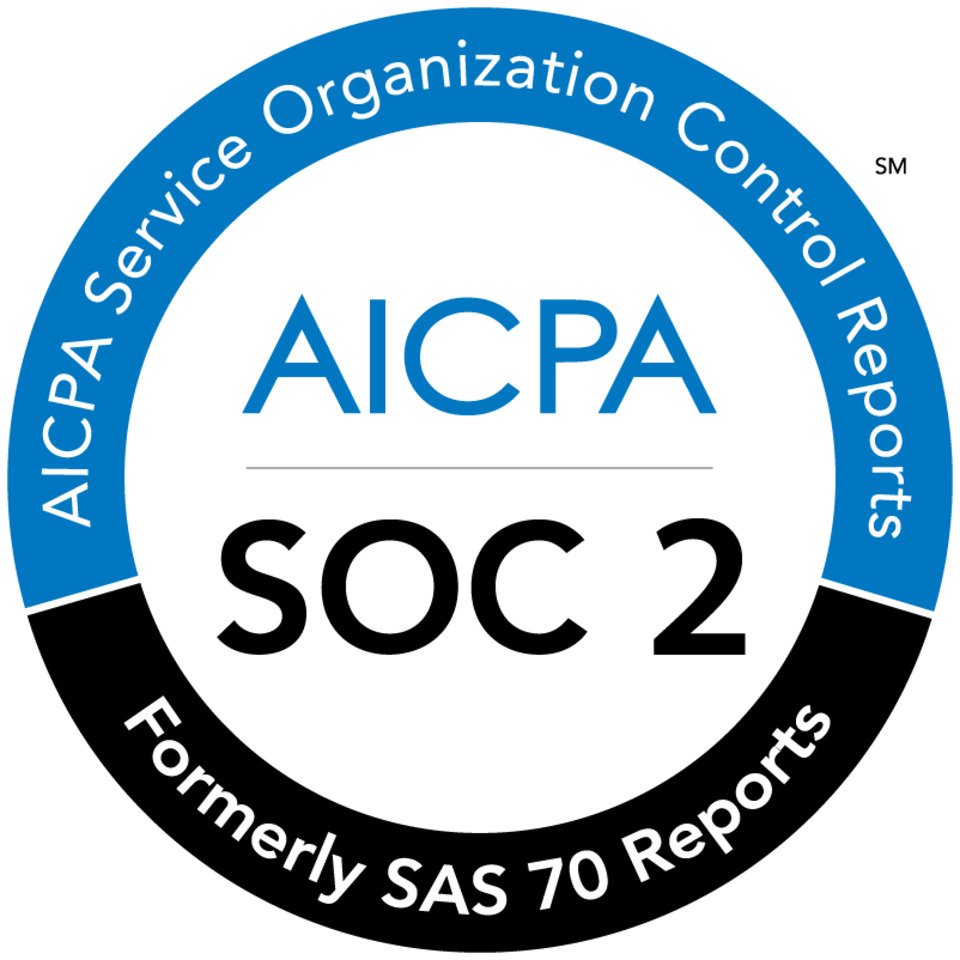Liquidity & Treasury Intelligence Systems
We partner with industry leaders



Industries That Benefit
Problems or Missed Opportunities We Solve
Limited Cash Visibility
Most organizations lack comprehensive visibility into their complete cash position, with 30-40% of treasury teams reporting “blind spots” in their global cash view. These gaps create uncertainty that requires excessive buffer maintenance.
Our approach:
- Consolidates cash data across all banking relationships
- Provides real-time position updates as transactions settle
- Offers consistent visibility across entities and currencies
- Eliminates information gaps that force conservative positioning
Inaccurate Forecasting
Traditional cash forecasting typically achieves only 60-70% accuracy beyond a two-week horizon, forcing organizations to maintain excessive buffers while still occasionally facing shortfalls. These forecast limitations directly impact capital efficiency.
The solution delivers:
- 80-90% forecast accuracy through AI-enhanced modeling
- Continuous learning from actual cash flow patterns
- Incorporation of business drivers and external factors
- Granular forecasting at appropriate time intervals
Reactive Liquidity Management
Most treasury operations discover potential liquidity challenges only when they begin materializing, providing limited time for optimal response. This reactive approach leads to suboptimal funding decisions and occasional scrambling for cash.
Advanced intelligence provides:
- 30-60 day early warning of potential liquidity challenges
- Proactive identification of cash flow pressure points
- Simulation of alternative response strategies
- Sufficient lead time for optimal funding arrangements
Excessive Safety Buffers
Incomplete visibility and forecast uncertainty force organizations to maintain 30-50% higher cash buffers than actually required. These excess reserves create significant opportunity costs through reduced investment returns or higher borrowing expenses.
Intelligent treasury enables:
- 15-25% reduction in required safety buffers
- More efficient deployment of excess cash
- Confidence in maintaining appropriate liquidity
- Significant improvement in capital utilization
Manual Scenario Analysis
Traditional treasury operations struggle to model complex liquidity scenarios, typically evaluating only 2-3 basic alternatives due to analytical limitations. This restricted scenario planning leaves organizations vulnerable to unexpected situations.
The platform enables:
- Rapid analysis of dozens of potential scenarios
- Complex modeling of interrelated cash factors
- Evaluation of various response strategies
- Comprehensive preparation for diverse market conditions
Case Study
Real Results from Financial Leaders
KYC Automation for a German Payments Fintech
A mid-sized German payment gateway with 180 employees processing approximately €700-800M in annual transactions, active in 6 EU markets.
- 28% conversion increased
- 40% improved performance
Conversational AI for a Spanish Insurance Firm
A traditional Spanish insurance provider with 85 years of history, 950 employees, and €280 million in annual premiums across home, auto, life, and commercial lines.
- 28% conversion increased
- 40% improved performance
Real-Time Fraud Detection in UK Digital Payments App
A fast-growing UK-based mobile payment application with 165 employees processing approximately £1.3 billion in annual transaction volume with around 700k active users.
- 28% conversion increased
- 40% improved performance
AI Copilot for Treasury Operations at a Spanish Payment Orchestration Platform
A mid-sized German payment gateway with 180 employees processing approximately €700-800M in annual transactions, active in 6 EU markets.
- 28% conversion increased
- 40% improved performance
Certifications & Compliance



Benefits of Using the Solution

Optimized Capital Utilization
Reduce cash buffers by 15-25% while maintaining appropriate liquidity through improved forecasting and visibility. Organizations typically release millions in trapped cash for productive use, directly enhancing returns and reducing borrowing requirements.

Enhanced Strategic Decision Support
Provide financial leadership with accurate cash projections and scenario analysis for major business decisions. Executives gain confidence in expansion timing, capital expenditures, and shareholder return strategies based on reliable liquidity intelligence.

Improved Financial Performance
Capture significant financial benefits through reduced borrowing costs, enhanced investment returns, and optimized working capital. Organizations typically realize 15-25 basis points of improvement in overall capital efficiency, flowing directly to bottom-line results.

Reduced Liquidity Risk
Identify potential cash flow challenges weeks before they materialize, providing ample time for optimal response. Treasury teams virtually eliminate firefighting and crisis funding while ensuring continuous operations under various business conditions.

Treasury Team Transformation
Elevate treasury from transaction processing to strategic financial management through advanced analytics and automation. Treasury professionals redirect 50-60% of their capacity from data gathering to strategic analysis and business partnership.
Process Flow

Treasury Assessment & Requirements
The engagement begins with comprehensive analysis of your current treasury operations, systems landscape, and specific cash management challenges. This assessment identifies improvement opportunities, integration requirements, and implementation priorities based on your business needs.
Data Integration & Model Development
Technical specialists establish connections with your banking platforms, ERP systems, and other financial data sources to create a unified cash information foundation. Financial modeling experts develop customized forecasting models aligned with your specific business patterns and drivers.
Dashboard & Analytics Configuration
Visualization and reporting specialists configure intuitive dashboards, analytical views, and scenario modeling tools based on your treasury team’s requirements. This customization ensures the solution addresses your specific treasury management approach and decision processes.
Testing & Forecast Validation
Rigorous testing verifies data accuracy, forecast reliability, and system performance across various scenarios and time horizons. This validation ensures the system delivers trustworthy insights for critical liquidity decisions.
Implementation & Treasury Enablement
The solution deploys through a controlled rollout approach, with treasury team members receiving comprehensive training on system capabilities, analytical tools, and forecast interpretation. This enablement ensures rapid adoption and effective utilization.
Continuous Refinement & Expansion
The treasury intelligence system continuously improves through machine learning, forecast accuracy analysis, and regular performance reviews. Additional capabilities and refinements deploy based on evolving treasury requirements and business needs.
Why Aspagnul Is the Ideal Partner
Treasury Management Expertise
The Aspagnul team combines deep expertise in corporate treasury operations, cash management, and liquidity risk with advanced data science capabilities. This specialized knowledge ensures our solutions address the actual challenges treasury teams face rather than providing generic financial tools.
Our treasury specialists have managed liquidity for major global organizations across diverse industries and market conditions, creating systems that deliver practical value rather than theoretical models.
Comprehensive Banking Connectivity
Our platform maintains established connections with over 300 global banking institutions, supporting multiple connectivity methods including SWIFT, API, host-to-host, and statement parsing. This extensive connectivity eliminates the most challenging aspect of treasury system implementation.
The solution accommodates diverse banking relationships across different regions and account structures, enabling truly comprehensive cash visibility without extensive connectivity projects.
Advanced Financial Modeling Capabilities
Our forecast engine incorporates sophisticated mathematical techniques specifically calibrated for cash flow patterns, including temporal sequence analysis, pattern recognition, and driver-based modeling that identify subtle cash flow signals traditional approaches miss.
These capabilities deliver the 80-90% forecast accuracy that enables meaningful buffer reduction and improved capital utilization across the organization.
Enterprise-Grade Security Infrastructure
Our platform is built specifically for the stringent security requirements of financial operations, maintaining ISO 27001, SOC 2 Type II, and GDPR certifications with bank-grade encryption and comprehensive access controls.
This purpose-built architecture provides the security and reliability that treasury operations demand, validated through regular penetration testing and security audits.
Proven Treasury Implementation Experience
Our treasury intelligence solutions have been implemented at over 200 organizations globally, managing trillions in annual cash flow with exceptional reliability. This implementation experience ensures smooth deployment in complex financial environments with diverse banking relationships and system landscapes.
Frequently Asked Questions
How does your forecast engine achieve significantly better accuracy than our current process?
Traditional forecasting approaches typically rely on basic historical averaging or simplistic trending that miss critical patterns in complex cash flows. Our AI-enhanced forecast engine delivers 80-90% accuracy through three fundamental advantages: first, it analyzes multidimensional patterns that incorporate seasonality, business cycles, and payment behaviors at a granular level; second, it integrates operational drivers such as sales pipelines, procurement plans, and payroll schedules to anticipate changes before they impact cash; third, it implements continuous learning that steadily improves accuracy through pattern analysis of forecast variances.
The system also differentiates between different types of cash flows based on their predictability characteristics—highly predictable flows like payroll are modeled differently from volatile components like customer payments. This sophisticated approach consistently outperforms traditional methods by a 25-35 percentage point accuracy improvement, particularly in the critical 30-90 day horizon where most strategic cash decisions occur.
How quickly can your system integrate with our banking relationships and internal systems?
The treasury platform connects with your financial ecosystem through pre-built integrations that dramatically accelerate implementation. For banking relationships, our established connectivity to over 300 global financial institutions enables typical connection timeframes of 2-3 weeks per bank, regardless of location or size. Multiple connection methods including SWIFT, APIs, host-to-host, and statement processing accommodate various bank capabilities.
For internal systems, standard integrations with major ERPs including SAP, Oracle, and Microsoft Dynamics typically require 3-4 weeks for implementation. Additional connections to specialized systems like billing platforms, payment processors, and treasury workstations are established through secure API integration or file processing. Most organizations achieve comprehensive implementation across their entire system landscape within 10-12 weeks, with initial capabilities deployed in as little as 4-6 weeks.
How does your system help optimize our cash buffer requirements?
Cash buffer optimization represents one of the highest-value treasury opportunities, with most organizations maintaining 30-50% more liquidity than actually required due to forecast uncertainty and limited visibility. Our approach enables buffer reduction through three complementary capabilities: dramatically improved forecast accuracy reduces the uncertainty premium in buffer calculations; comprehensive real-time visibility eliminates the need for buffers covering information gaps; and sophisticated scenario modeling quantifies appropriate buffer levels under various business conditions.
The platform provides specific recommendations for buffer adjustments based on your organization’s risk tolerance, cash flow volatility, and access to contingent funding sources. These targeted recommendations typically enable 15-25% buffer reduction while maintaining appropriate liquidity protection, releasing significant capital for more productive use through either debt reduction or investment deployment.
What specific treasury processes does the system enhance or replace?
The treasury intelligence platform enhances or automates several core treasury functions while integrating with your existing treasury workstation or ERP for transaction execution. Key processes transformed include daily cash positioning (automated consolidation across all banks and entities), cash forecasting (AI-enhanced projections replacing spreadsheet-based manual forecasting), scenario analysis (sophisticated modeling replacing basic spreadsheet calculations), liquidity risk management (automated stress testing and early warning indicators), and working capital analysis (detailed analytics replacing periodic manual reviews).
The solution complements rather than replaces transaction execution systems, providing the intelligence layer that drives better decisions while connecting with your existing platforms for payment processing, investment management, and accounting. This approach delivers strategic treasury intelligence without disrupting operational processes or requiring extensive change management.
How do you maintain security and compliance for sensitive treasury data?
Treasury data security forms the foundation of our platform, with multiple protective layers including end-to-end encryption, multi-factor authentication, comprehensive access controls, and detailed activity logging. The solution can operate within your security perimeter, with options for on-premises deployment, private cloud configuration, or hybrid models based on your security requirements.
All treasury operations comply with financial data protection regulations including SOC 2 Type II, ISO 27001, and GDPR requirements, with regular independent security audits and certifications. The platform includes specialized features for regulated industries, including segregated access controls, comprehensive audit trails, and specific compliance reporting capabilities required for banking and insurance treasury operations.
What measurable ROI should we expect from implementing your treasury intelligence solution?
Organizations typically achieve returns in four primary areas: capital efficiency improvements (15-25% reduction in cash buffers), investment yield enhancement (15-30 basis points on invested balances), borrowing cost reduction (reduced short-term borrowing needs and improved facility sizing), and treasury staff productivity (40-60% reduction in time spent on routine activities).
These benefits translate to ROI ratios of 5-7x in the first year for most implementations, with specific returns depending on your cash flow volume, average balances, and current forecasting approach. For organizations managing significant cash positions, the release of excess buffer capital alone typically delivers complete ROI within the first 3-6 months. We establish baseline measurements during initial assessment and track improvements against these metrics to provide clear value documentation.
Let's get in touch
We’re excited to hear from you and to start something special together.
- In-depth analysis of your systems, identifying improvements and the necessary steps to take.
- After we define the solution, we’ll include an additional feature at no cost to maximise its value.
- Up to 100 hours of no-cost support after implementation.
Contact Information

Turn your financial operations with purpose-built AI solutions from Aspagnul that reduce costs, accelerate growth, and ensure regulatory compliance across financial institutions.
